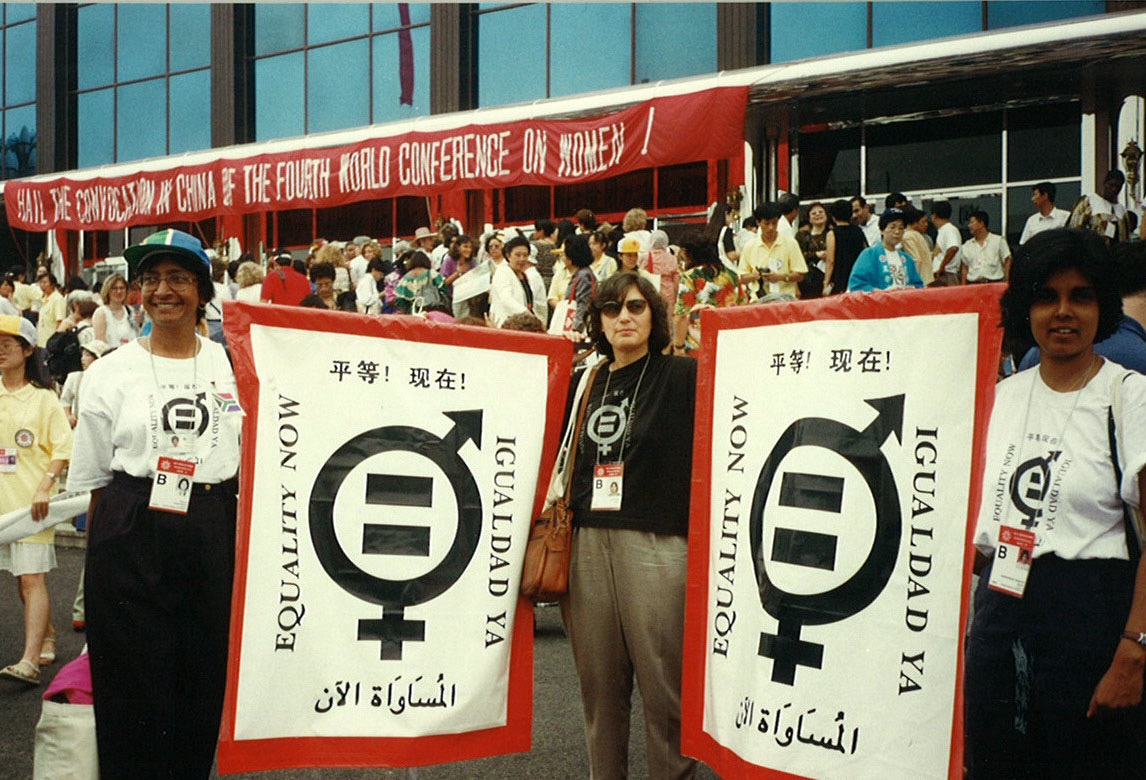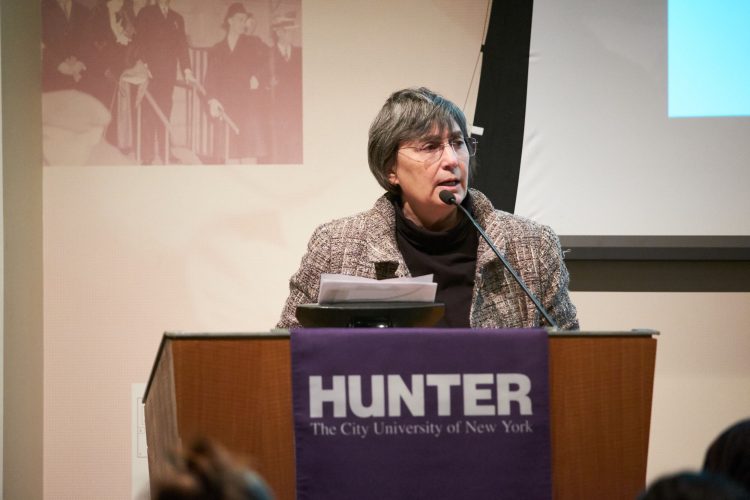HelpAge International is launching a campaign to honour the 30th anniversary of the historic 1995 Beijing Conference by spotlighting remarkable women who attended and helped shape the global gender equality agenda.
“To be a movement, you have to move – and we must move forward”
Jessica Neuwirth has spent decades at the forefront of the fight for gender equality. Reflecting on the 1995 Beijing Conference, she recalls both its historic impact and the unfulfilled promises that followed. From landmark legal victories to ongoing setbacks, she explores the progress made – and the battles that still lie ahead.
Memories of 1995: rain, friendship, and a landmark asylum case
When Jessica Neuwirth looks back at the 1995 Beijing Conference, she recalls the torrential rain and the muddy grounds of the NGO Forum in Huairou. But beyond the weather, it was an unparalleled opportunity to connect with women from around the world, forging friendships and collaborations that would have a lasting impact.
One such connection led to a groundbreaking human rights victory. Jessica met a young lawyer, Layli Miller Bashir, who was working on the asylum case of Fauziya Kassindja, a 17-year-old girl from Togo detained in the United States after fleeing female genital mutilation and forced marriage. On returning home, Jessica visited Fauziya in detention, and her organisation, Equality Now, launched a successful campaign that led to Fauziya’s release. The case set a legal precedent, recognising female genital mutilation as a form of persecution warranting asylum in the United States.
Moments like these remind Jessica of the power of global solidarity. As she puts it, “Many great things came out of the Beijing Conference.” But thirty years on, she is left questioning whether the promises made back then have truly been honoured.

A spiral of progress and setbacks
Jessica describes gender equality over the past three decades as a slow-moving spiral – progressing upwards, but with many setbacks along the way. There have been undeniable advances: violence against women, including domestic abuse, sex trafficking, and female genital mutilation, is now globally recognised as a human rights violation. The #MeToo movement brought unprecedented awareness to sexual harassment. But with progress comes backlash.
“We now have sexual predators at the highest levels of government,” Jessica says, referring to the reality in her home country, the United States. Meanwhile, the resurgence of the Taliban in Afghanistan has led to the systematic oppression of women and girls – who are not allowed to work or go to school, not even allowed to be seen or heard – with little effective outcry from the international community. Even within the U.S., women are still fighting for constitutional recognition of the Equal Rights Amendment – something Jessica believes should be a given.
Social media has amplified both activism and opposition. While it has been a powerful tool for women’s rights, it has also enabled the spread of misogyny and abuse. This duality leaves Jessica both hopeful and disillusioned. “Now toxic masculinity is being glorified rather than vilified,” she says. “It feels a bit bleak at the moment.”
The unfinished business of the Beijing Platform for Action
The Beijing Platform for Action remains one of the most comprehensive global blueprints for gender equality. But Jessica is frank in her assessment: “There are huge gaps in its implementation – more than just gaps. The intent and the spirit of the Platform for Action have been largely ignored by those in power.”
She points to the absence of a female Secretary-General at the United Nations as a glaring example of unfulfilled promises. Despite the abundance of highly qualified women, the political will to break the highest glass ceilings remains absent.
Yet, she remains committed to the long fight. “We have all worked hard to turn the rhetoric into reality – everything from repealing discriminatory laws to putting women at the highest levels of decision-making.” But without greater accountability from those in power, true progress will remain out of reach.
A call for intergenerational activism
For Jessica, the future of the movement depends on bridging generational divides. While she sees greater attention to the rights of older women and other marginalised groups, she emphasises the need for younger and older activists to work together more effectively.
“There is sometimes a sense of mutual disdain that can be counterproductive,” she notes. Younger generations must respect the struggles and achievements of those who came before, while older generations must embrace new ideas and step back when necessary to allow for fresh leadership.
Despite her concerns about the current state of the world, Jessica remains steadfast in her core belief: “Ultimately, equality will prevail. Most people really do believe in and support the fundamental principle of equality for all. We need to find a way to move forward and bring people together. If we can figure out how to do that, the rest should be easy.”
Her message to future generations is clear: the road ahead may be long, but giving up is not an option. “As they say, to be a movement you have to move.”
 Jessica Neuwirth is an international women’s rights lawyer and activist. She is one of the founders and Honorary President of the international women’s rights organisation Equality Now, and the founder and Director of Frontline Women’s Fund that support women’s rights organisations around the world. She is also a founder and President Emerita of the ERA Coalition, mobilising a renewed effort to get the Equal Rights Amendment into the United States Constitution. To aid this effort, she has also written a book Equal Means Equal, Why the Time for the ERA is Now.
Jessica Neuwirth is an international women’s rights lawyer and activist. She is one of the founders and Honorary President of the international women’s rights organisation Equality Now, and the founder and Director of Frontline Women’s Fund that support women’s rights organisations around the world. She is also a founder and President Emerita of the ERA Coalition, mobilising a renewed effort to get the Equal Rights Amendment into the United States Constitution. To aid this effort, she has also written a book Equal Means Equal, Why the Time for the ERA is Now.
Jessica was a special consultant on sexual violence to the International Criminal Tribunal for Rwanda for its landmark Akayesu judgment holding that rape is a form of genocide. She subsequently directed the legal team that drafted the judgment of the Special Court for Sierra Leone convicting former Liberian President Charles Taylor of war crimes and crimes against humanity.
